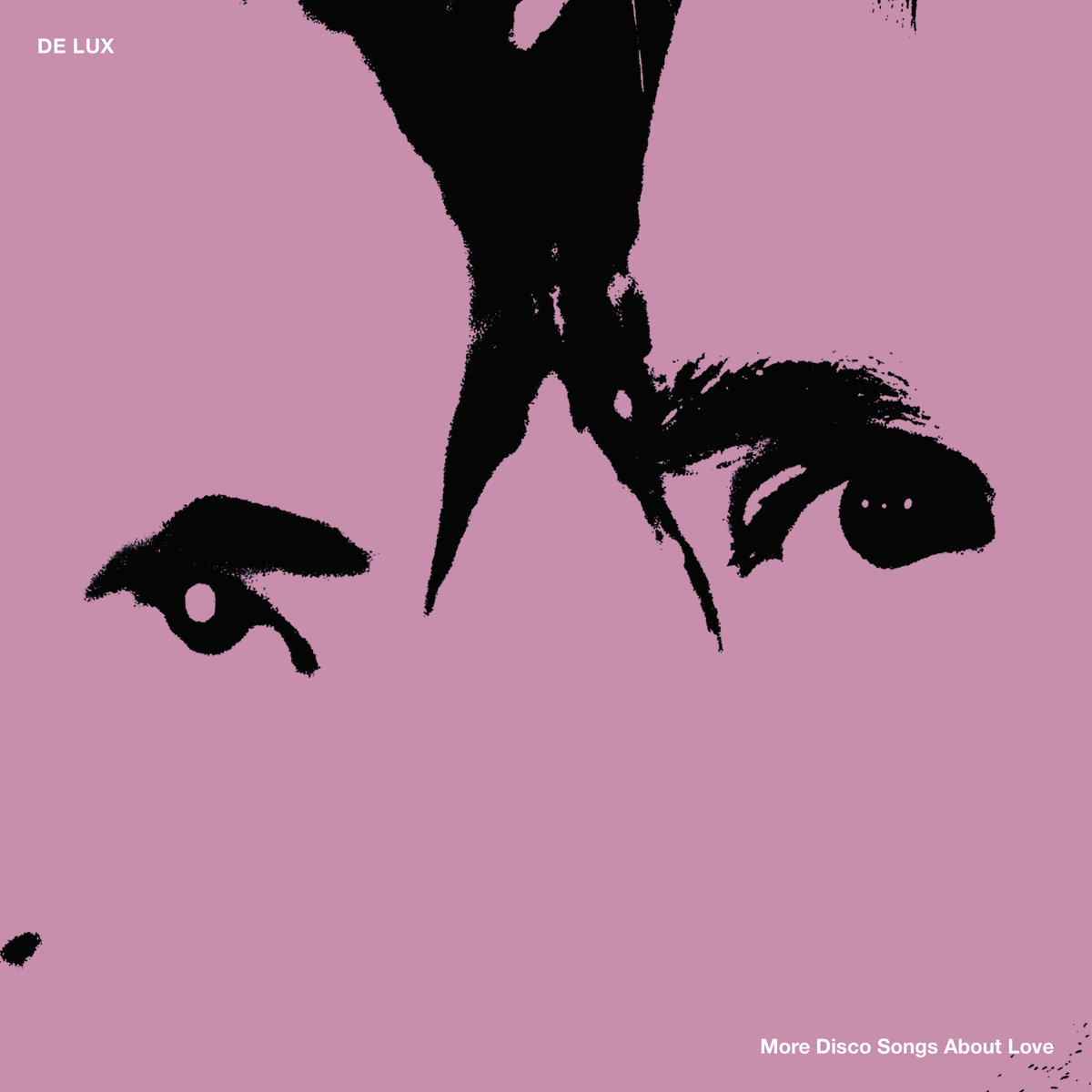Community is currently on the mind of Los Angeles residents Sean Guerin and Issac Franco. Three years ago they were preoccupied with sarcastic yet humorous observations on pop culture (a commentary comparable to LCD Soundsystem and Talking Heads) but now their focus is on appreciating and embracing the neighbourhood around them. De Lux still make Disco songs with a toe-tapping rhythm, as the their new album’s title More Disco Songs About Love suggests, but the “love” element stretches beyond just sexual relationships to extend to friendship, family and anything else that makes up their character.
The duo’s third album begins with the ‘875 Dollars’ – a track that sounds like Chromeo performing Van McCoy’s ‘Do The Hustle’ – that expresses the strong desire to stay connected to one’s childhood within adulthood. In the song the narrator desperately wants to buy their parents’ house to preserve the memories that attach to it: “This is the house that I can see myself dying in. Why can’t I live in it? C’mon, just let me live in it.” It’s quite touching and it’s reminiscent of the homesick feeling behind Childhood‘s Universal High from last year.
Family is also demonstrated in De Lux’s decision to include Sean Guerin’s mother in the speedy ‘Music Snob’. She speaks in French talking about crepe making and how it’s impossible to make the perfect crepe because everyone has different taste preferences. It’s a euphemism for music taste.
It’s worth noting that De Lux went through a period of creative anxiety and Writing Music for Money, To Write More Music documents a typical musician dilemma. Whether to quickly write music that will sell to make enough money to make more music – sacrificing artistic integrity in the process – or to get another job to avoid sacrificing their true creativity: “Maybe I should get a job work for an agency, cause in case I write another song but it doesn’t mean anything.”
However, when De Lux regained their creative motivation they actually risked artistic stubbornness by asking advice from their community and love ones above how to improve their album. For a duo previously so protective over their music and process, the decision to hold test hearings to gain feedback was a bold move because it could smooth experimental moments into popular accessibility.
Furthermore on the branching out front, they asked Patrick Mundy to help mix tracks on the release and have included two guest vocalists in Post-Punk pioneer Mark Stewart on ‘Stratosphere Girl’ and fellow Dance-Punk enthusiast Sal P on ‘Smarter Harder Darker’ (yes, it is hard to not think of Daft Punk).
The former is a stand-out track with the pairing of Stewart’s demanding English accent with edgy and wayward funk sounding like a combination of Thomas Dolby‘s ‘She Blinded Me With Science’ with Prince‘s ‘Partyman’. It’s refreshingly capricious because most of the album has a straightforward and fixed rhythm, which although inspired by a technique used in Stevie Wonder records and possibly the focus group method, makes certain tracks dull and repetitive when lengthy, whilst De Lux’s vocals aren’t so impressive, strong or idiosyncratic enough to carry the weight of tracks along by itself.
This means that to keep the album interesting, layers of synthesizer, production effects and the lyrics have to be fascinating. The lyrics can be just that at times, with the most heartbreaking reflection on their concept of community on More Disco Songs About Love being ‘Keyboards Cause We’re Black and White’. A powerful study on schizophrenia. It documents the case of their high school friend Ben – who De Lux used to jam and skateboard with – who now as an adult suffers from a schizophrenic condition, yet Guerin and Franco still try to find time to visit him.
Of course, disco music itself is the most communal of music genres. By keeping that aspect of their music alive, De Lux have the most powerful symbol of community.




